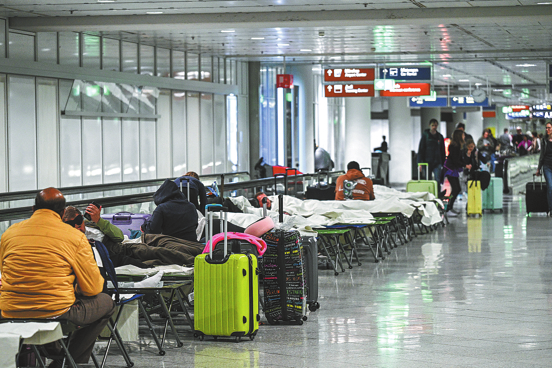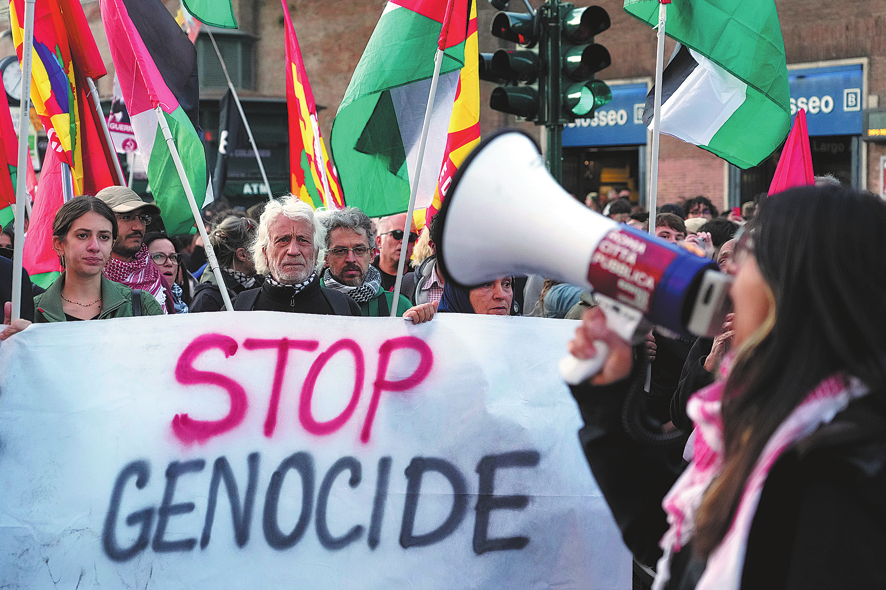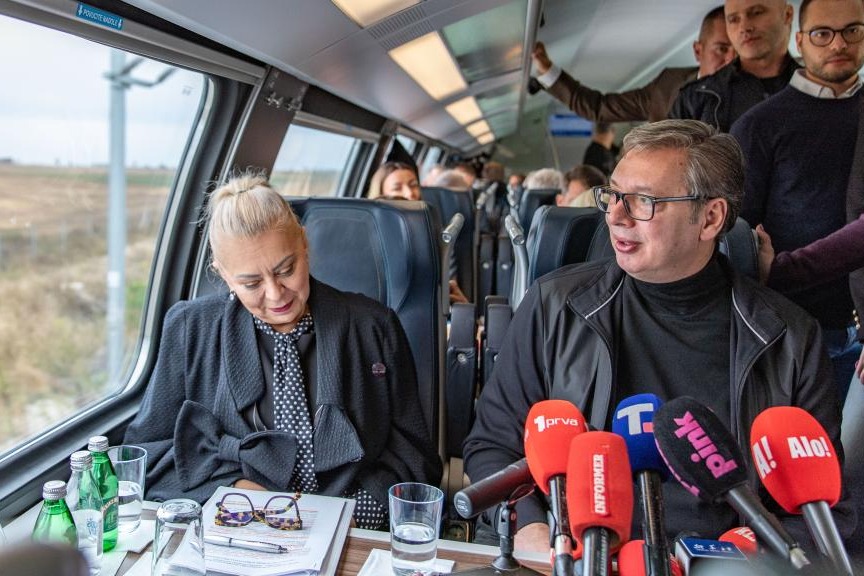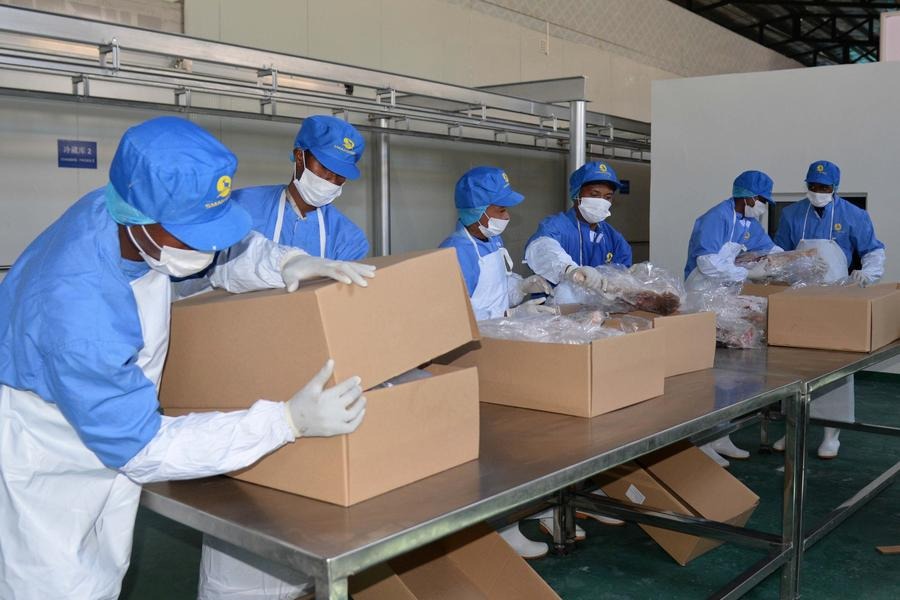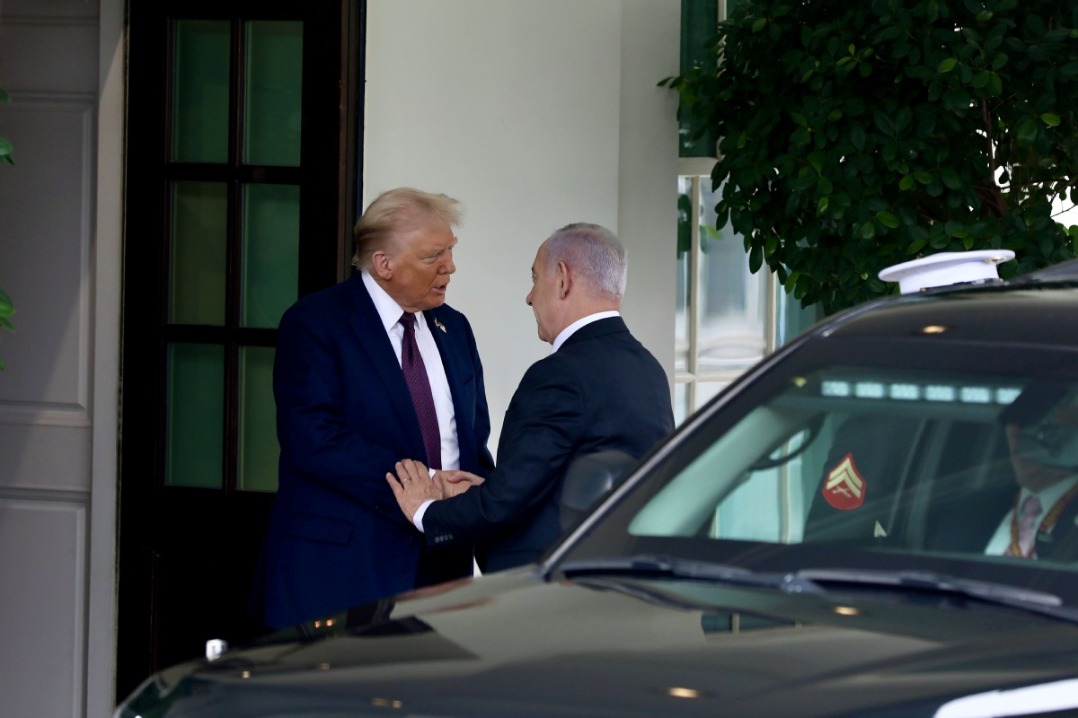Trudeau invokes emergency act in bid to end protests

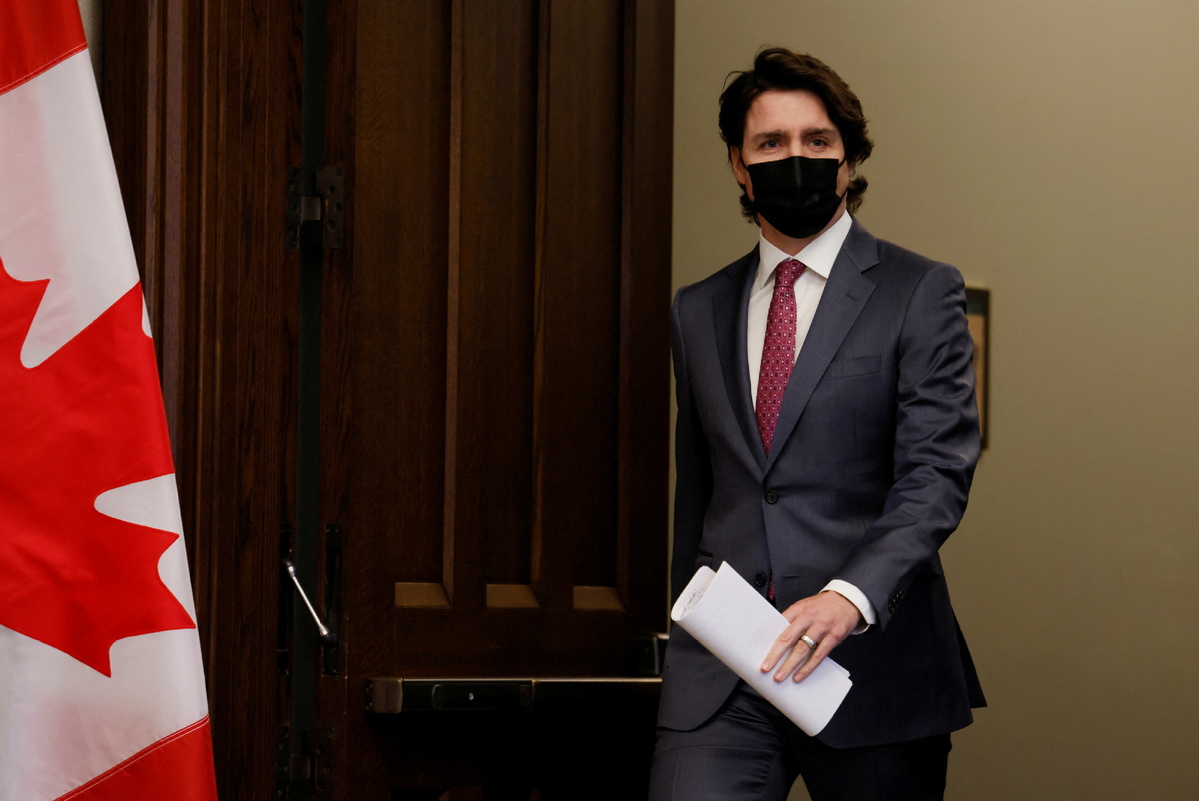
Canadian Prime Minister Justin Trudeau declared a national public order emergency Monday — invoking the Emergencies Act for the first time in Canada's history — to crack down on nationwide protests vaccine mandates.
In a news conference Monday afternoon, Trudeau announced that he was triggering the Act following discussions with the federal cabinet, the Liberal caucus, premiers and opposition leaders.
The act authorizes police heightened powers to restore order in places where public assemblies constitute "illegal and dangerous activities", such as blockades and occupations. The act also will enable the Canadian police to enforce municipal bylaws and provincial offenses where required, according to CBC News.
"This is about keeping Canadians safe, protecting people's jobs and restoring confidence in our institutions," Trudeau said, adding that the measures do not include calling in the military or overriding civil rights.
The act will allow the government to designate and secure the critical areas such as border crossings and airports, making sure that essential services are rendered. The federal government is also going after financial support for activity associated with the protest that it deems illegal.
Finance Minister Chrystia Freeland said that under the Emergencies Act, crowdfunding platforms and the payment service providers used by the protest organizers must register with the national financial intelligence agency FINTRAC.
Attorney General and Justice Minister David Lametti emphasized that the "temporary" measures will last for 30 days.
The invocation of the Emergencies Act and the measures under it is immediate. However, Lametti said the government will also form a parliamentary oversight committee within the coming days to oversee how the powers issued under the act are enforced.
The move is the first time the government has taken such action in half a century and is the Trudeau government's most aggressive response since the protests roiling the country began.
The Emergencies Act was introduced in July 1988 to replace the War Measures Act, which was invoked by Trudeau's father, Pierre Elliott Trudeau, to suppress a wave of terrorism during the "October Crisis" in Quebec in 1970. It was the only time in Canadian history that the war act was applied in peacetime.
Leah West, an assistant professor in international studies at Carleton University who specializes in national security law, told reporters that it isn't clear that the challenges facing the country by the blockades are ones that require additional powers or laws.
"To invoke a national emergency, the government would need to be saying that these protests threaten the security of Canada, our sovereignty or our territorial integrity," West told CBC News. "I have real concerns about fudging the legal thresholds to invoke the most powerful federal law that we have."
NDP Leader Jagmeet Singh said he sees the declaration to turn to the Emergencies Act as "proof of a failure of leadership", but he supports enacting the exceptional authority.
The demonstration called the "Freedom Convoy", now in its third week, was started by Canadian truckers against the COVID-19 vaccinate mandate for cross-border drivers. It has attracted supporters opposed to Trudeau's policies on everything from pandemic restrictions to a carbon tax.
One of the protest organizers in Ottawa vowed not to back down.
"There are no threats that will frighten us. We will hold the line," Tamara Lich said.
Cadalin Valcea, a truck driver from Montreal who has been protesting for more than two weeks, said he will move only if forced: "We want only one thing: to finish with this lockdown and these restrictions."
A few provinces have announced plans to remove COVID-19 restrictions amid the anti-mandate and increasingly anti-government protests, but Trudeau has insisted that vaccine mandates are under his government's control.
Ontario Premier Doug Ford announced Monday that the province, home to Ottawa, would drop vaccine mandates by March 1 if hospitalization rates continued to improve.
Alberta, Manitoba and Saskatchewan provinces also have announced plans to drop the mandates.
Quebec Premier François Legault disagreed with Trudeau's declaration.
"At this point, it would not help the social climate," he said. "There is a lot of pressure, and I think we have to be careful."
The blockades at the bridge linking Windsor and Detroit, Michigan, were broken up Sunday by police, who made 12 arrests.
Police in Alberta said they also disrupted a group of protesters reportedly prepared to use violence to support the truckers at a border crossing with the US on Monday. Officers said they have detained 11 people and seized 13 long guns, as well as handguns and a large quantity of ammunition.
The Associated Press contributed to this story.
















